Departments
Government Engineering College, Munger came into the existence on 25th September 2019 when the Honorable Chief Minister of Bihar.
Civil Engineering
- Overview
- Vision & Mission
- Faculty
- Time Table
- Labs
- Staff
- Curriculum
- Achievements
- Departmental Magazines
- Question Bank
- e-Learning & Gate Classes
- Notices
Overview
The Civil Engineering is the branch with a lot of diversity right from Surveying, Geo-technology to Structural Engineering, Environmental Sciences to Hydraulics, and Transportation to Hydrology. The primary purpose of any Civil Engineer is to provide various facilities and build necessary infrastructure to meet all social needs. Shelter, drinking water, and waste water management, as well as the movement of people and products via various forms of transportation such as roads, railways, Airways & Urban Transportation Systems, Management of Water Resources through Dams & Reservoirs are addressed by a Civil Engineer. Communication, Organizational, Leadership and Decision-making skills are very important to civil engineer as every infrastructure projects requires huge man power and team management. Key skills that differentiate a Civil Engineer from others are emotional intelligence and Creativity with societal responsibility.
The main objective of department is to provide:
- 1. Industry Standard Facilities
- 2. Field Visits
- 3. Employability
The department has well-equipped laboratory facilities like Computer Aided Engineering Drawing, Programming for Problem Solving, Engineering Geology, Surveying and Geomatics, Concrete Technology, Hydraulics and Hydraulic Machinery, Strength of Materials, Hydrology lab, Material Testing, Geotechnical Engineering, Transportation Engineering, Advanced Structural Design.
In order to make teaching effective and interesting, the students are nurtured with a variety of learning activities including and not restricted to class room teaching, presentations, video lectures, MOOC courses, minor / honours courses, experiential learning (ExL) and online courses by faculty in the institute and across the globe.
The students are encouraged to learn advanced computing technologies to increase their core competency in the ever-growing market scenario as a complimentary technology for the core engineering knowledge. Also, advanced research software like Rivet, StaadPro etc., is taught in college premises by inviting experts from industries to impart their knowledge. The students are supported to go for full semester internships across the globe to various partner institutes to improve their prospects post their completion of graduate degree.
VISION
To produce eminent, competitive and dedicated civil engineers by imparting latest technical skills and ethical values to empower the students to play a key role in the planning and execution of infrastructural & developmental activities of the nation.
MISSION
To provide exceptional education in civil engineering through quality teaching, state-of-the-art facilities and dynamic guidance to produce civil engineering graduates, who are professionally excellent to face complex technical challenges with creativity, leadership, ethics and social consciousness.
Faculty of Civil Engineering
Name of Faculty












Updating shortly.......sorry for the inconvenience!!
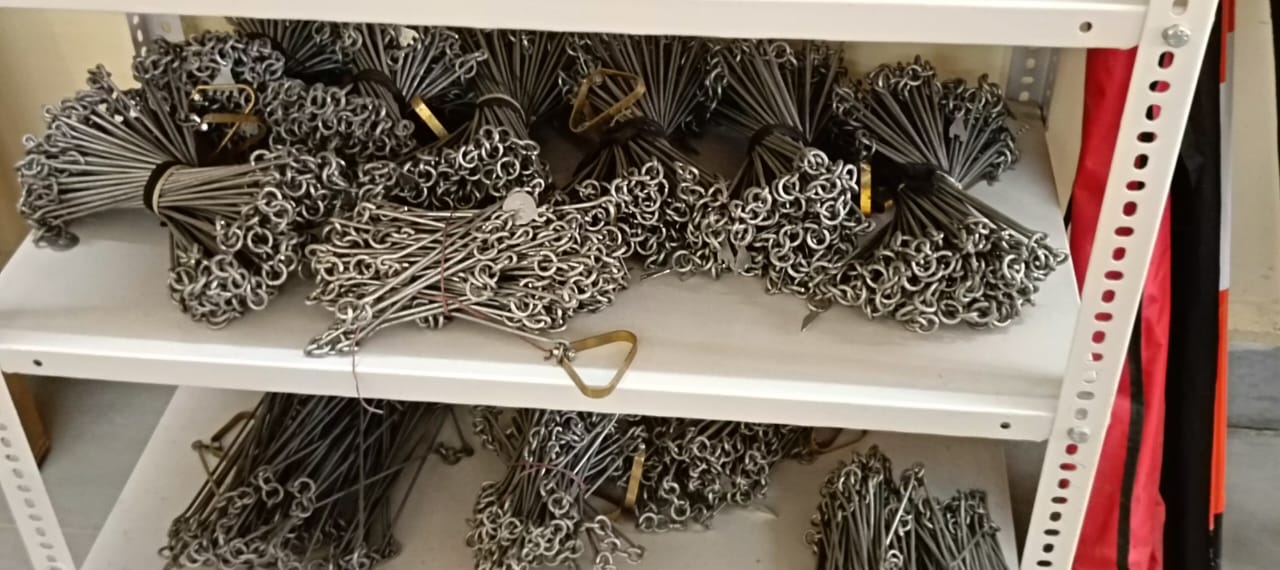
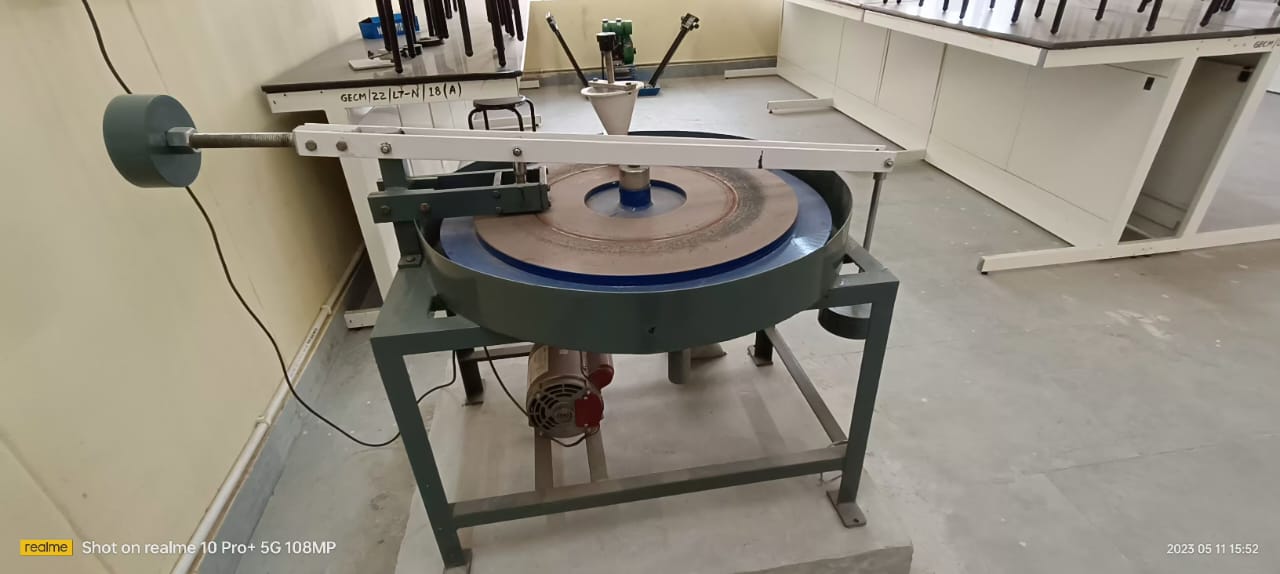
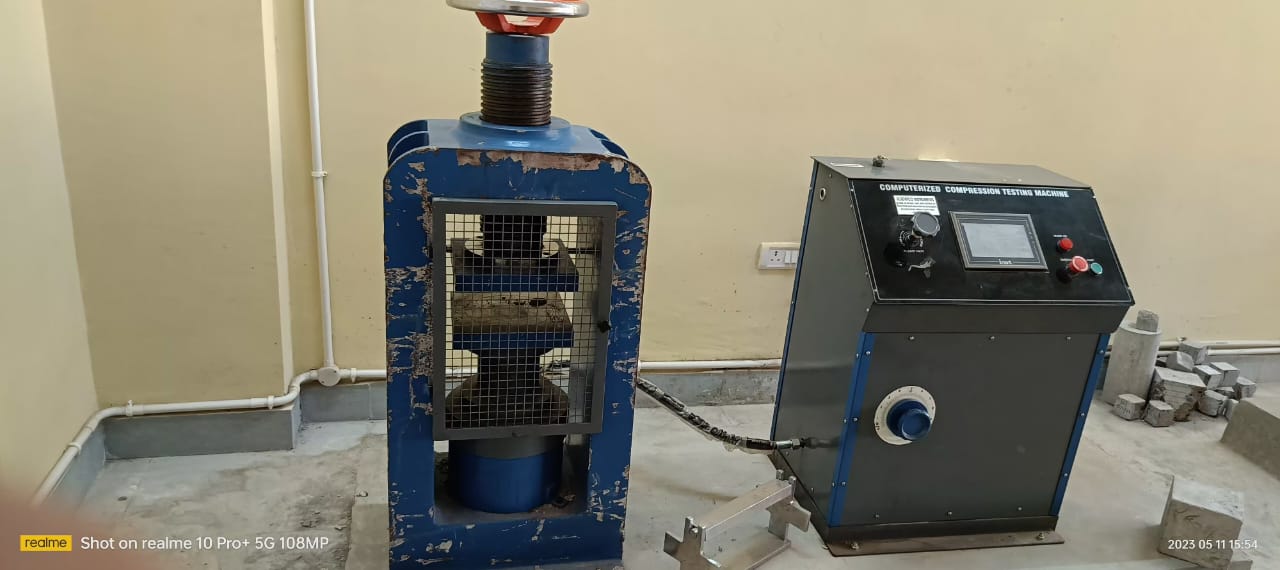
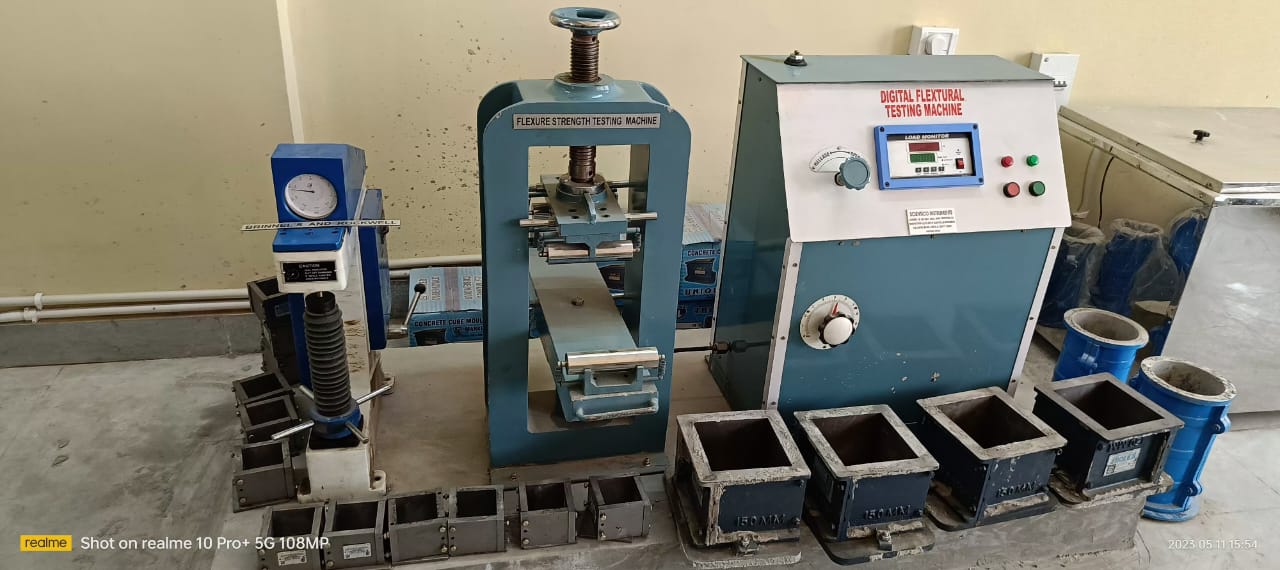
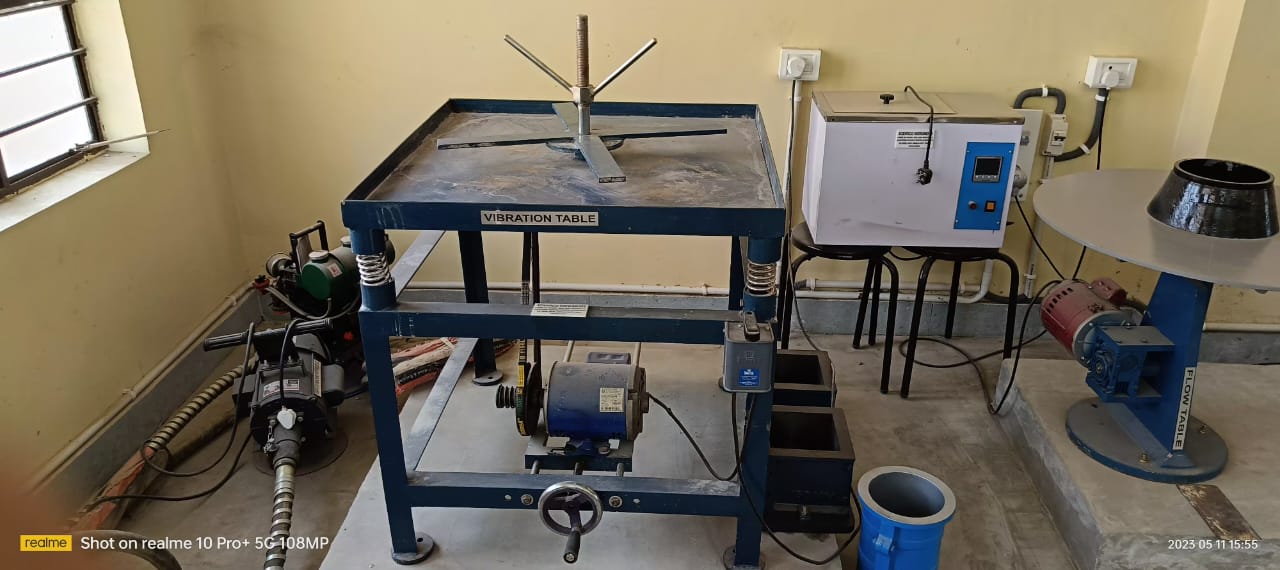
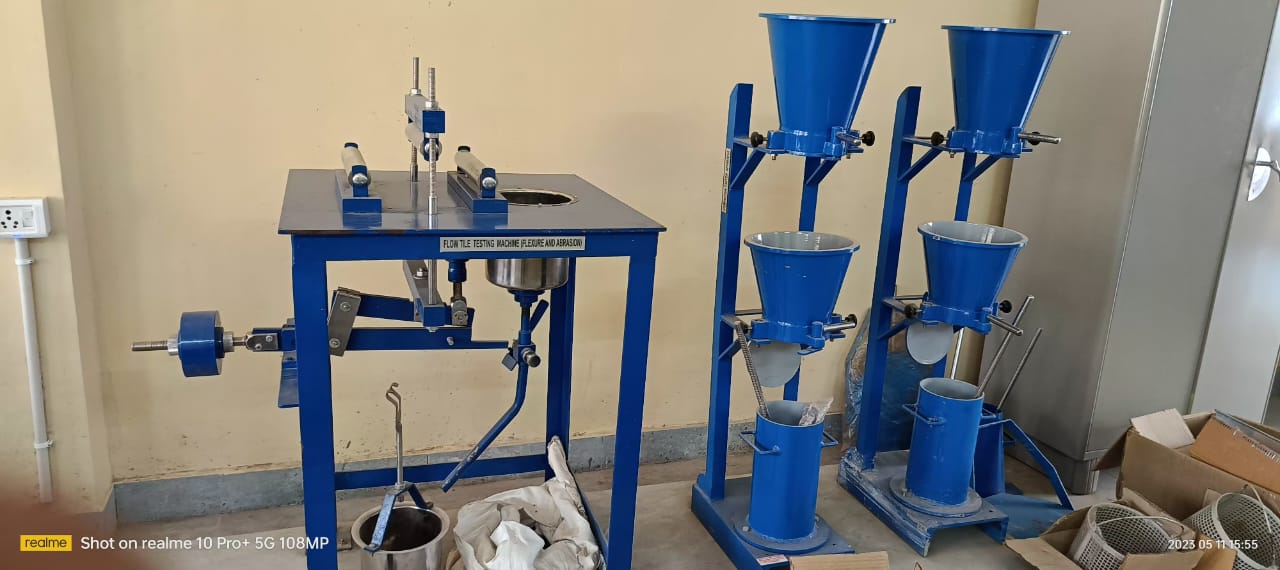
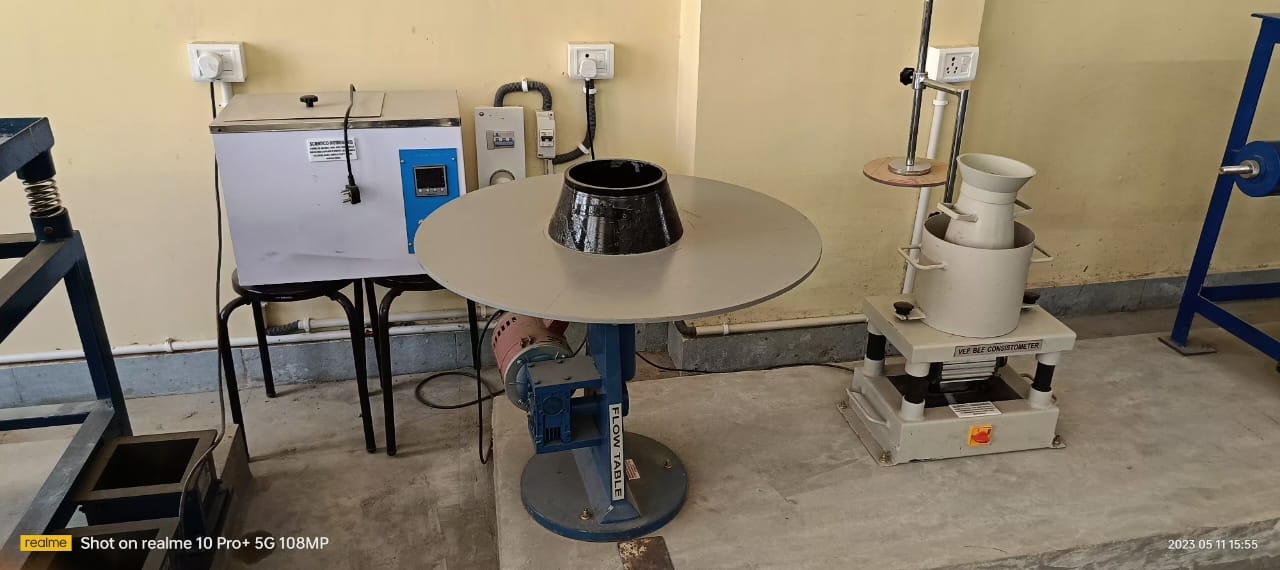
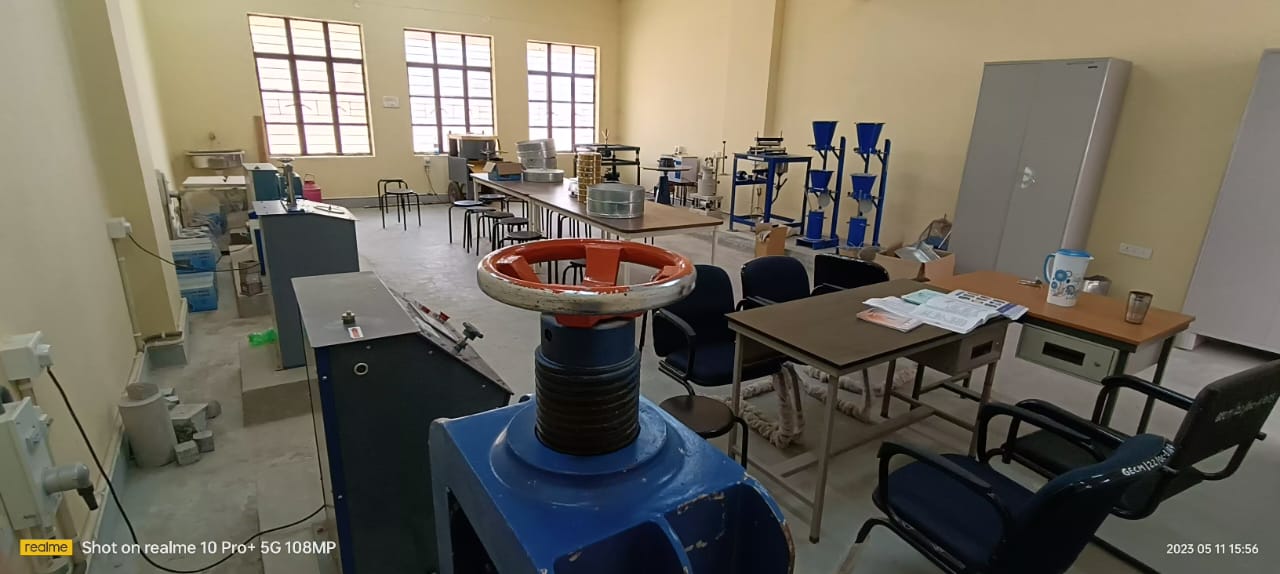

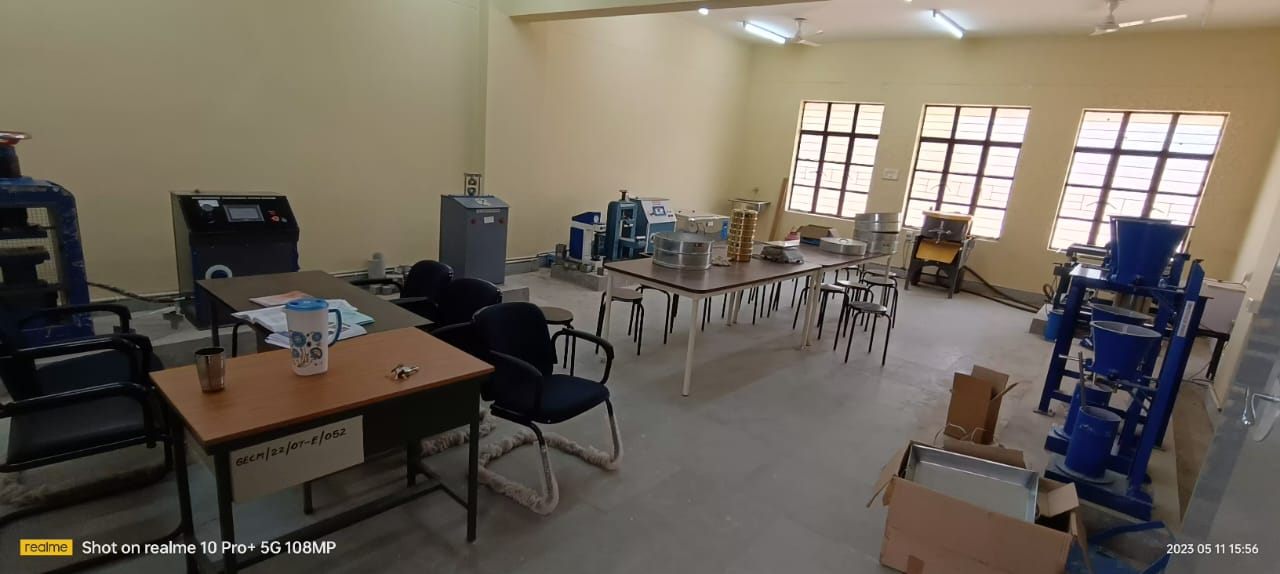

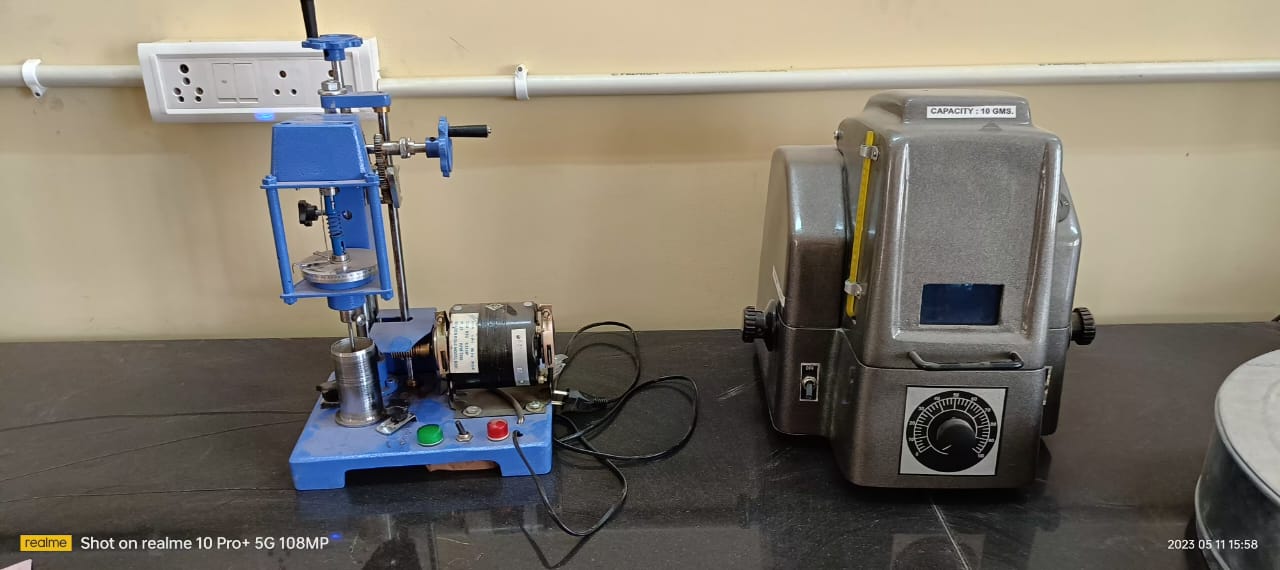
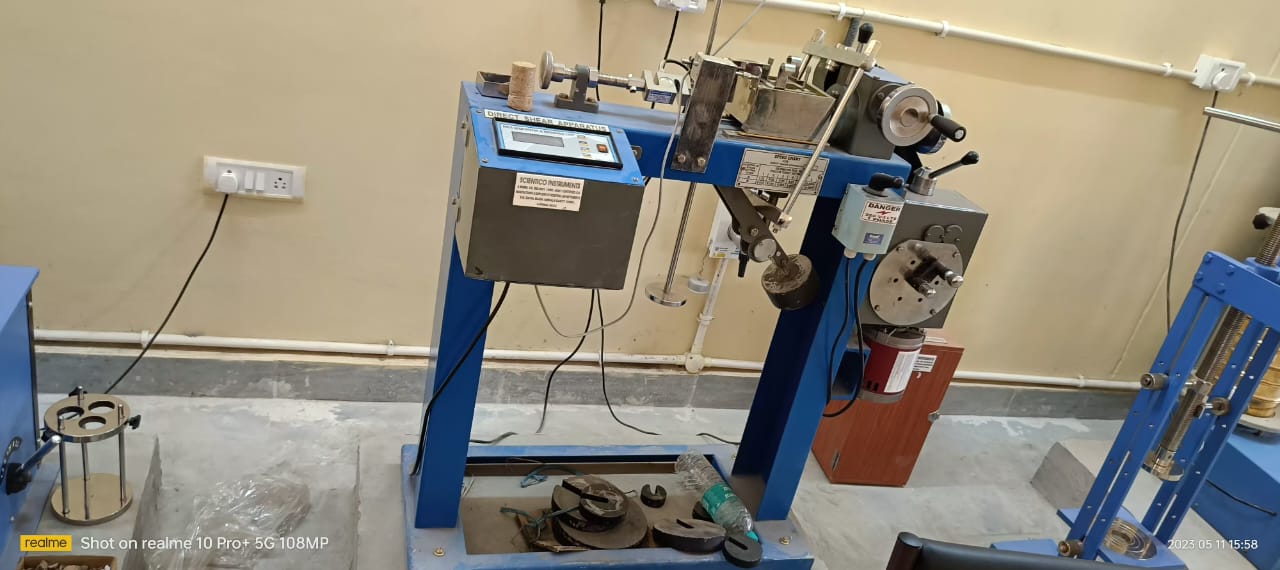

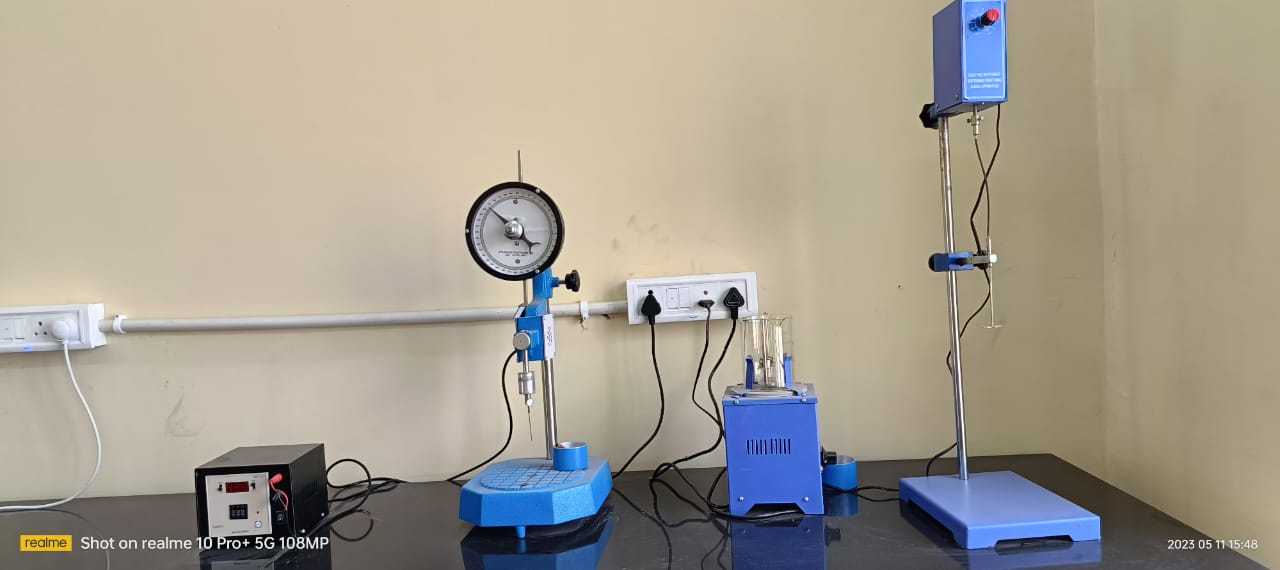
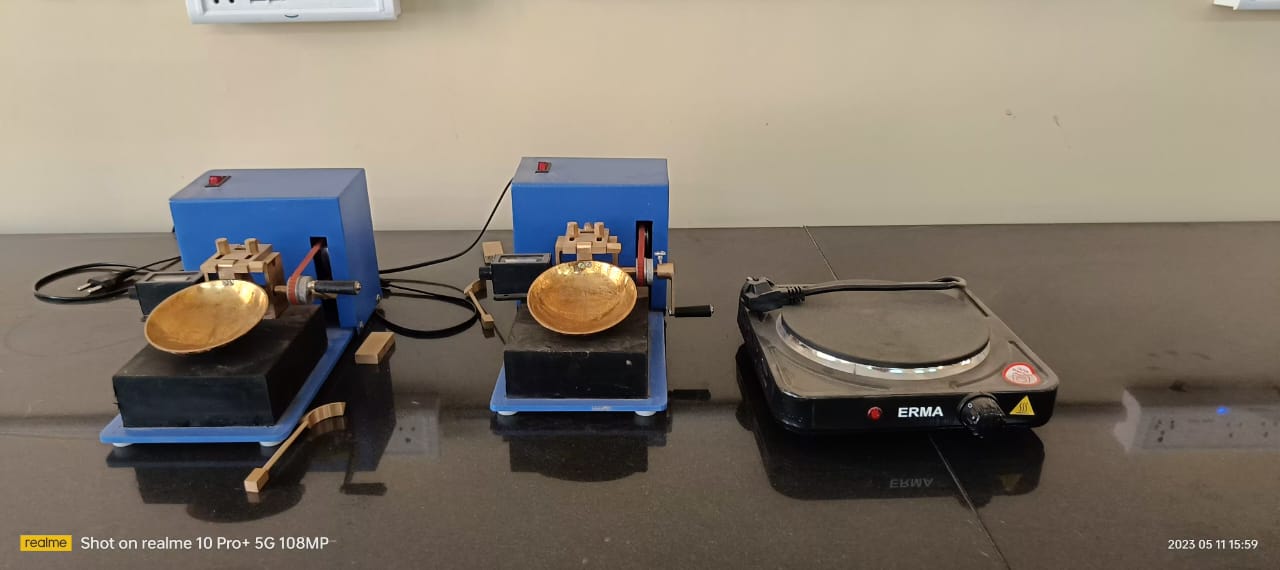
Surveying Laboratory
To familiarize and make the students to obtain the knowledge of surveying equipment and measurement techniques with emphasis on levelling and traversing using chain, tape, levelling instruments and compass survey. To impart the practical knowledge of the subject by recording measurements.
Geotechnical Engineering Laboratory
This Laboratory is designed to obtain the basic knowledge about the soil under loading and unloading conditions occurred during the constructionof structure at site. This laboratory helpsthe students to understand the basic and engineering properties of soils such as Specific gravity,Atterberg’s limit, Compaction, Consolidation, Permeability and Shear strength of soils.
Engineering Geology Laboratory
It helps in understanding the natural crystalline structure of rocks and minerals and gives an idea of the faults and folds which occur. And also find the detailed structure with the help of a microscope.
Concrete Technology Laboratory
This Laboratory is designed to obtain basic knowledge about cement, coarse and fine aggregates, and their performance during construction. This laboratory helps the students to understand the basic and engineering properties of cement, fine and coarse aggregates such as specific gravity, soundness limit, compressive strength, water absorption, slump and compaction factor type, and non-destructive strength of concrete samples. Engineering Geology Laboratory.
Transportation Engineering Laboratory
This Laboratory is designed to obtain the basic knowledge about the civil engineering materials bitumen, coarse and fine aggregates and their performance during the construction. The important engineering properties such as specific gravity, compressive strength, water absorption, slump and compaction factor type, non-destructive strength of concrete, penetration value, softening, ductility, flash and fire point of bituminous samples.
Environmental Engineering Laboratory
This laboratory course aims at making the students familiarize with the essential Environmental Engineeringequipment’s and experimental methodology that are used to obtain the different characteristics of water and wastewater such as pH, Turbidity, Conductivity, Dissolved Oxygen (DO), Total Dissolved Solids (TDS; Organic and Inorganic), Alkalinity/Acidity, Chloride, Chlorine demand, Iron, Nitrates Nitrogen, Total Phosphorus, Optimum dose of Coagulant, Biochemical Oxygen Demand (BOD), Chemical Oxygen Demand (COD) and Coliforms test etc.
Fluid Mechanics & Hydraulic Machinery Laboratory
Understanding the laws and concepts which guide the behaviour of a fluid is very important for the engineering students. This laboratory provides students with an introduction to principal concepts and methods of fluid mechanics. Topics covered in the course include pressure, hydrostatics, and buoyancy; mass conservation and momentum conservation for moving fluids; viscous fluid flows, flow through pipes; dimensional analysis; boundary layers, Head loss in a flow and introduction to hydraulic machines. Students will work to formulate the models necessary to study, analyse, and design fluid systems through the application of these concepts, and to develop the problem-solving skills essential to good engineering practice of fluid mechanics in practical applications.
It is an introductory course where flow behaviour, fluid forces and analysis tools are introduced. The goals of the experiments include demonstration of the continuity and energy equations. The lab experiments utilize U-tube manometer data acquisition where students will learn the working principle and laws guiding the fluid in the manometer. The other important part of the lab is learning about hydraulic machines where students will practically see the importance of hydraulic machinery. The lab runs closely with the lectures in such a way that experiments support the text covered in the class room
Staff of Civil Engineering
Name
- 1.MD. EZAZ
- 2.SAURAV KUMAR
- 3.AMIT SINGH
- 3.MUKESH RAJ
Deg.
- LAB ASSISTANT
- LAB INSTRUCTOR
- LAB ASSISTANT
- LAB INSTRUCTOR
Qualification
- BTECH
- DIPLOMA
- BTECH
- DIPLOMA
Curriculum
Updating shortly.......sorry for the inconvenience!!
Updating shortly.......sorry for the inconvenience!!
Updating shortly.......sorry for the inconvenience!!
Updating shortly.......sorry for the inconvenience!!

